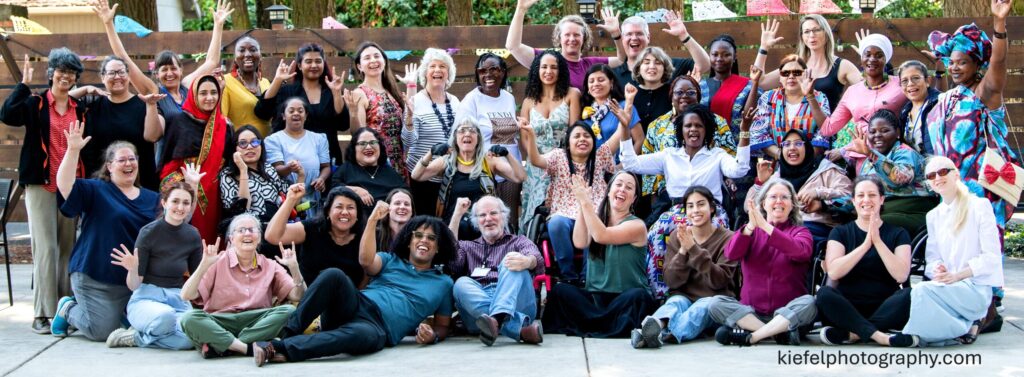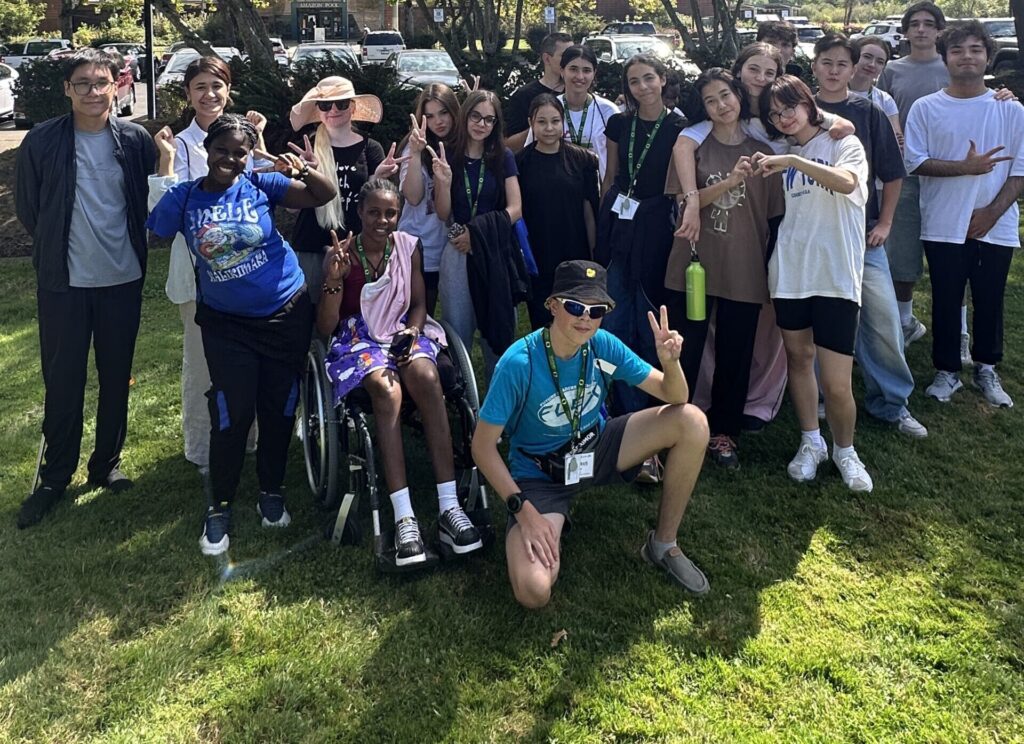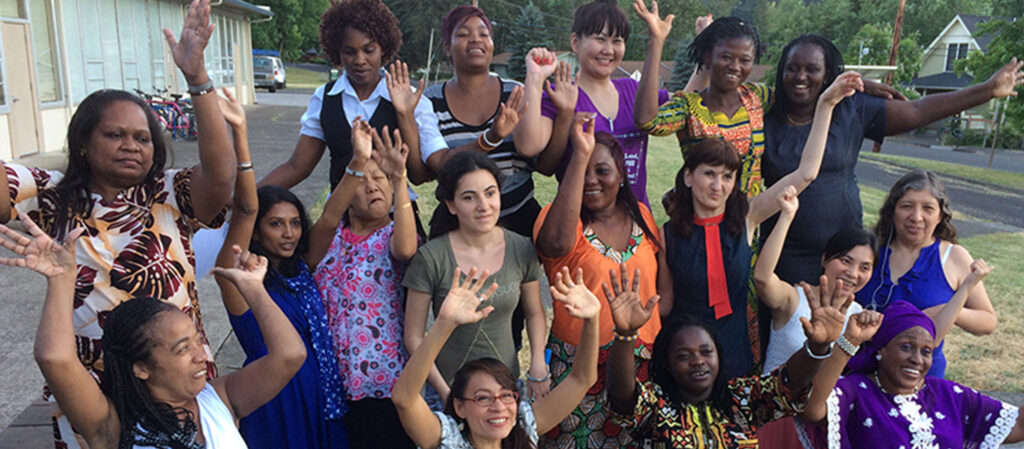Across the globe, alumnae of MIUSA’s Women’s Institute on Leadership and Disability (WILD) program are strengthening movements by bringing disabled women and non-disabled allies together in discussions about climate justice, LQBTQ+ rights, sexual and reproductive health, and other critical issues.
For the first time, MIUSA supported “Inclusive Movement Building” projects through small grants awarded to five WILD alumnae. These short-term projects focused on strengthening disabled women’s and other movements by fostering collaboration between Disabled People’s Organizations (DPOs) and other non-governmental organizations (NGOs) on issues critical to all communities.
Grants were awarded to alumnae in Albania, Egypt, Nepal, Panama, and Uganda. Hanan Aly from Egypt reflected on the importance of these funds in starting collaborative conversations:
“Having this grant was very helpful because [it allowed us to] do things; it was possible to engage people. And, this was the first time that [disabled women] were leading. We were not behind, we were leading. This was very important to us.”
In total, the five projects reached over 280 beneficiaries. All five alumnae reported they plan follow up activities as a result of their initiatives. Read a summary of each project below.
ALBANIA
Representing the Albanian Disability Rights Foundation (ADRF), Doljana Velia coordinated a round table meeting between the disability community, LGBTQI+ community, and the Roma community. Through this project, ADRF also created opportunities to meet with the Tirane Municipality and the Elbasan Municipality. Doljana reflected on the value of collaborating with different communities through this project:
“We not only learned from each other, but we are also supporting each other to guarantee more rights for women coming from marginalized groups.”

EGYPT
Hanan Aly, representing the Arab Association of the Deaf (AAD), partnered with an organization focused on environmental justice. AAD coordinated several trainings in Cairo, Alexandria, and Sudan, benefitting 62 Deaf women. Hanan expressed the importance of this collaboration in breaking down misconceptions about the knowledge and capabilities of Deaf women, especially when it comes to climate issues.
“Getting people together and sharing ideas, [among] those diverse perspectives, was really helpful. I think we are on the [right] path. The collaborations absolutely were stronger [as a result of this project]. We are creating alliances with organizations of hearing people on a common issue. I feel like we have a broader vision now.”

NEPAL
Representing the Federation of Women with Disability Nepal (FWDN), Rama Dhakal coordinated a project that centered on government advocacy related to women’s rights and human rights. FWDN coordinated meetings with the National Women Commission, National Human Rights Commission, Ministry of Finance, Ministry of Health and Population, the Police, and several others. FWDN’s advocacy reached 124 beneficiaries, and resulted in commitments from many diverse stakeholders to address accessibility.
Rama reflected:
“This type of funding is very important because we can do more advocacy, [to build] more connections with the government.”
PANAMA
In Panama, two WILD alumnae collaborated to bring disability community members together with the LGBTQI+ community. Marissa Martínez and Estefania Cubillos, representing Asociación de Mujeres Autonomas con Discapacidad de Panama (AMADIPA), implemented a workshop focused on disability and sexual diversity, with participants from both communities.
Estefania noted this was the first workshop that discussed both disability and sexuality together:
“Forming those alliances with other organizations was a very good thing. It helped us push out of that comfort zone. We [AMADIPA] have never worked on this topic [of sexuality] together before. It’s all new. We have to break some taboos that the community has about these topics. I think we did create a bit of controversy amongst the people with disabilities [during this project]. That just means that we touched on a sensitive topic that we need to keep exploring.”

UGANDA
Mastulah Nalubwama, representing the Uganda Federation of the Hard of Hearing (UFHOH), partnered with local health care centers to conduct a workshop on sexual and reproductive health for women with disabilities. Prior to the workshop, UFHOH prepared disabled women and girls who would attend the workshop on advocacy strategies. The workshop served as an opportunity for discussion between disabled women and health care workers, and led to commitments from the health centers to improve service for women with disabilities in hospital settings. Mastulah reflected:
“This collaboration made our movement much stronger because our network and opportunities increased. This project not only widened our movement within our civil society, but also with our government. We are getting closer. We are [creating] channels to address our issues.”
“I dream we can become the ambassadors and see an improvement in sexual reproductive health for women and girls with disabilities.”




